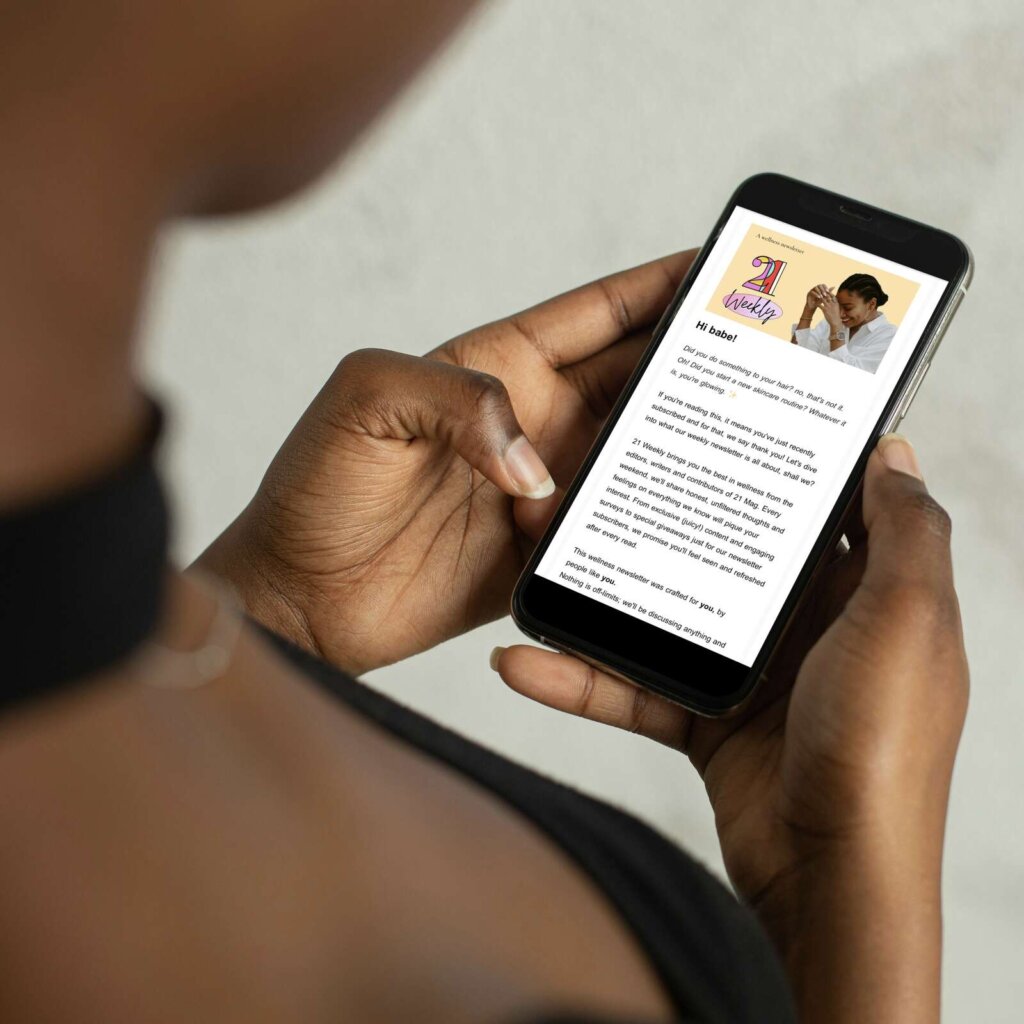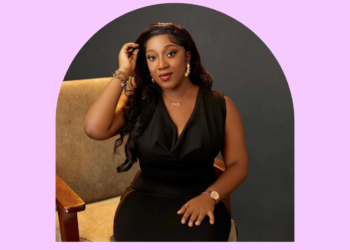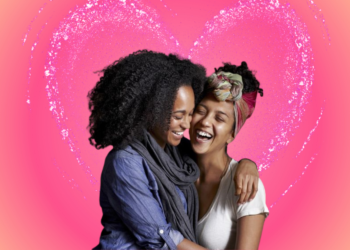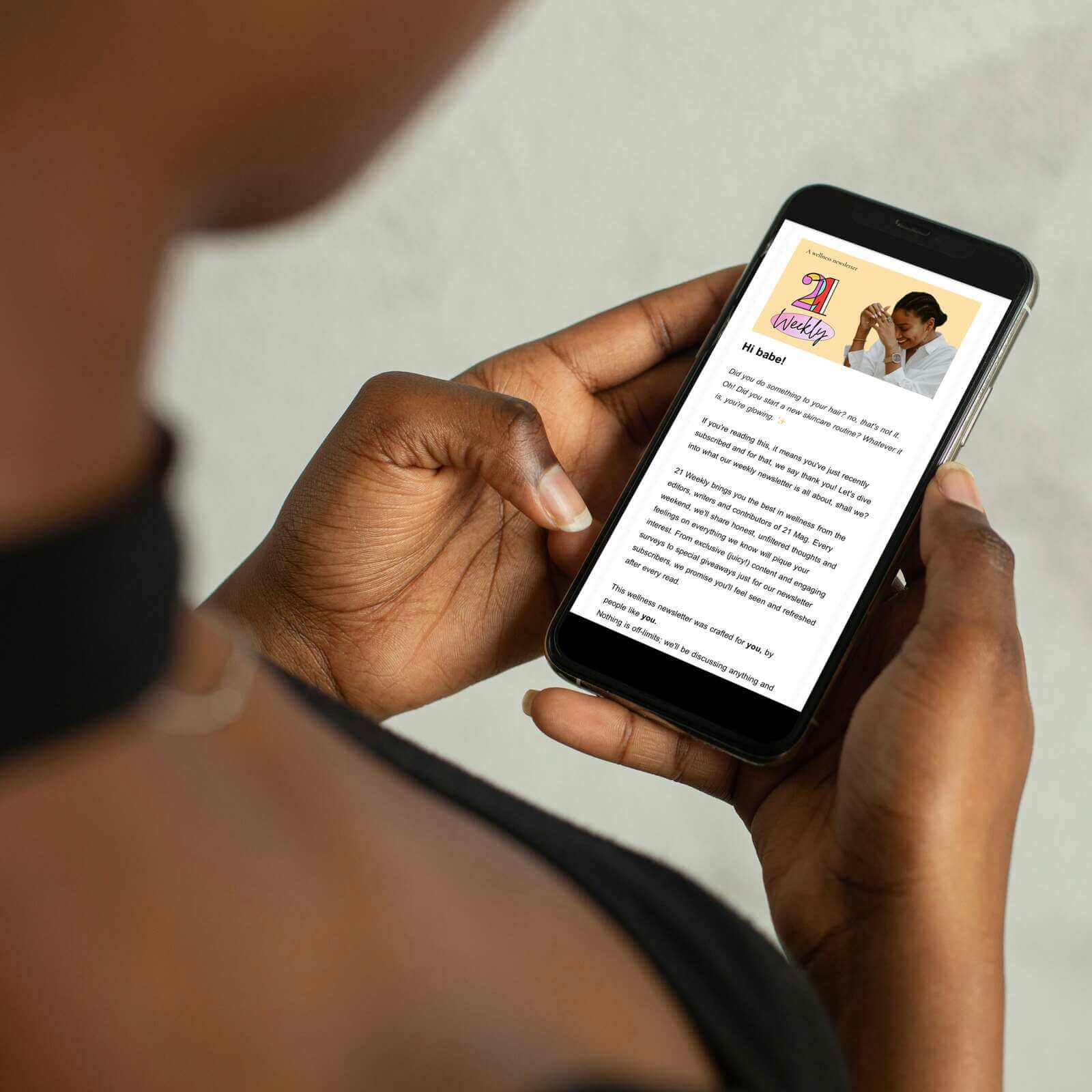No products in the cart.
“I Love Watching My Partner Fall in Love With Other People” – Navigating Relationships As a Polyamorous Person
Polyamory is the practice of engaging in multiple romantic (and typically sexual) relationships with the consent of all the people involved. There are different types of polyam relationships; mono-poly relationships where one partner is monogamous while the other is polyamorous, throuples where all three partners are romantically and/or sexually involved with each other, quads where all four partners are connected, hierarchical polyamory where a person has a primary partner and then one or more secondary relationships and non-hierarchical polyamory where there is no primary partner and all the relationships are deemed equal.
We spoke to three polyamorous women about their relationship dynamics, how they navigate love and romance and common misconceptions people have about polyamory.
Honey, 24
What Is Polyamory to You, and What Is the Dynamic of Your Relationships?
I’ll say polyamory is being able to love more than one person at a time romantically. My relationship is currently just open. We have casual partners that we don’t really form romantic connections with, but this is something that can always change. Before now, I had only ever been in monogamous relationships. But in my current relationship, we have rules – sometimes we add to them, and sometimes we remove from them. We also try to do a relationship “appraisal” every month. The biggest things that I don’t see changing are using protection with other people, telling our partner when we meet someone we’re interested in, and letting the other person/people know we’re in a relationship.
Please Tell Us About Some of Your Experiences dating As a Polyam Person, Are They Mostly Positive? Negative? a Little of Both?
It’s kind of mixed. My being polyamorous was an issue in my last relationship. My ex kept saying I was going to leave him for someone else, saying I was going to cheat on him, and things like that. But before him, I had met another polyam person that I had feelings for. It never developed into an actual romantic relationship because neither of us wanted a relationship at the time.
What Are Common Misconceptions About Polyamory and How Do You Feel About Them?
The one that annoys me the most is when people say that polyamory is an excuse to cheat. Another somewhat annoying misconception is that it’s impossible to love more than one person romantically. I know romantic love is different from the rest, but I don’t know what is so impossible about loving multiple people that way when you can love your many friends and siblings.
Click here to be featured anonymously on RealAf. We would love to tell your story!
Temi, 20
How Would You Describe Polyamory, and What Type of Polyamory Do You Practice?
Polyamory is basically having consensual relationships with more than one person. There are different types of poly relationships, and I practice non-hierarchical polyamory where all my relationships are pretty much equal to me.
How Do You Navigate Love and Relationships As a Polyam Person?
Navigating love and relationships as a polyam person is hard work and is also actually freeing. I have no desire to be anyone’s sole source of romantic love, have anyone focus all their attention on me or be the only person to fulfil all their romantic desires, and I can’t do that for anyone either, so being polyam works well for me. It’s a little hard because of the setting of boundaries and examining feelings but I don’t think it’s that different from monogamous relationships.
How Have Your Dating Experiences Been So Far?
My experiences dating as a polyam person have been just there. The dating pool is very small and I don’t date people who are monogamous, want to try polyamory or a situation where I’d end up being their first polyamorous relationship because I personally think it’s a recipe for disaster. That’s probably the negative part of it, trying to meet people that are polyam and finding people that are right for you. The positive side is when you finally find the people, it feels so right and freeing.
What Are Common Misconceptions About Polyamory, and How Do You Feel About Them?
I think the misconception people have about polyamory is that it’s basically cheating, and that’s because they can’t do it. And to be honest, it’s so annoying. Like yes, you can’t do it, but making no effort to understand it is weird. I can’t do monogamy either, and I don’t insult people that do it. They’re always assuming there’s no way to cheat in a polyam relationship, which is completely false. A cheater will be a cheater no matter what relationship you’re in. Also when they ask cheaters to just say they want an open relationship, like??? If they wanted an open relationship, they would have said so but they don’t. It just shows how they think about polyam people.
Ada, 25
How Would You Describe Polyamory, and What Is the Dynamic of Your Relationships?
I’d describe it as the ability to not only love multiple people romantically but also to enter relationships with multiple people and build romantic connections. You can be polyamorous and decide to date just one person and not explore other connections, maybe due to mental strain or because you no really get strength like that. The dynamic of my own relationships is that I have multiple partners who, although I love differently, are all considered to be on the same level. I don’t practice hierarchical polyamory.
How Do You Navigate Love and Relationships As a Polyam Person?
I think a lot of it is sitting down to have difficult conversations and communicating feelings. Jealousy can arise in polyamorous situations, but you can reach out to your partner and ask for a little extra reassurance and love. I love watching my partner fall in love with other people. You know when you and your partner fall in love, you don’t know how giggly and giddy with excitement they get because it’s not you they’re sharing those feelings and thoughts with, you get? But watching them fall for someone is allowing you to see another side to your partner and really helps you get to know them. So, navigating it is a lot of talking, listening and understanding. It’s not easy, but to be honest, no relationship really is.
How Have Your Experiences Been, Dating As a Polyamorous Person? Are They Mostly Positive, Negative, or a Little of Both?
As a polyamorous person, dating is quite interesting. When you meet monogamous people, they always assume they can “handle” it but then they start demanding you spend less time with your other partner or partners. I think when I’ve dated other poly people, I’ve had a great time. I’m friends with their other partners sometimes, or at least have a cordial relationship with them. I get to experience them and see how they act with other people. I honestly love being polyam.
I think I’ve mostly had good relationships. I want to thank God for that because hmm. It’s been mostly positive because I hardly date non-poly people. I no get strength.
What Are Common Misconceptions About Polyamory, and How Do You Feel About Them?
There are so many dumb misconceptions about polyamory like when people suggest polyamory as a solution to cheating. People can cheat in polyamorous relationships, and people need to understand that because it’s so dumb. Polyamory is not just physical, it’s also a romantic connection. We don’t just want to be sleeping with people, we actually love and care for our other partners.
Navigating relationships as a polyamorous person can be a deeply personal and enriching journey. The experiences shared by the three women highlighted the importance of open communication, setting boundaries, and debunking common misconceptions about polyamory. By sharing their stories, they shed light on the diverse ways in which individuals practice polyamory, emphasizing that there is no one-size-fits-all approach.
One significant aspect that emerged from their narratives was the concept of non-hierarchical polyamory. One of the women expressed her preference for this style, which emphasizes treating all partners equally without imposing a hierarchical structure. This approach challenges the societal norm of viewing relationships in a hierarchical manner and promotes a more egalitarian and inclusive dynamic.
Throughout their experiences, all women emphasized the importance of establishing clear rules and boundaries within their relationships. This highlighted the significance of open and honest communication, as well as continuous dialogue and negotiation with partners. By being transparent about their needs, desires, and limitations, they were able to foster trust and create a foundation for healthy and fulfilling connections.
















